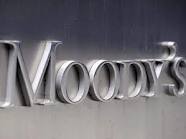By Celia Chen, senior director, and Cristian deRitis director, Moody’s Analytics
 Press accounts this week charge Freddie Mac with a conflict of interest that penalizes struggling U.S. homeowners and retards the recovery of the housing market. The ostensible revelations actually come as little surprise, but they do highlight the ambiguous status of Freddie and its sister agency, Fannie Mae.
Press accounts this week charge Freddie Mac with a conflict of interest that penalizes struggling U.S. homeowners and retards the recovery of the housing market. The ostensible revelations actually come as little surprise, but they do highlight the ambiguous status of Freddie and its sister agency, Fannie Mae.
Freddie (like Fannie) has a dual mission. Its main business is guaranteeing mortgage credit risk, a function that ensures money is available when Americans want to purchase a home. But the company needs profits to stay in this business, as well as to minimize the cost to taxpayers, who have been subsidizing the agency since it was placed in conservatorship in 2008. To earn money it trades in residential mortgage-backed securities—and herein lies the conflict.
When homeowners refinance, RMBS returns go down. Thus the credit-risk side of the company could potentially help keep profits up by making refinancing harder. This looks bad at a time when millions of households are struggling and mortgage rates are at record low levels; and worse given that policymakers are encouraging refinancing as a way of shoring up the housing market.
The story is less sensational than it appears: Freddie's potential conflict has long been recognized, and the agency operates its two businesses independently of each other. Yet the issue does highlight a broader problem with both Freddie's and Fannie's current status: Neither fully public nor fully private, they serve neither interest well. The nation would be better off if their investment arms were spun off from the rest of the company. Congress needs to chart a course for the agencies' future, and the sooner the better.



